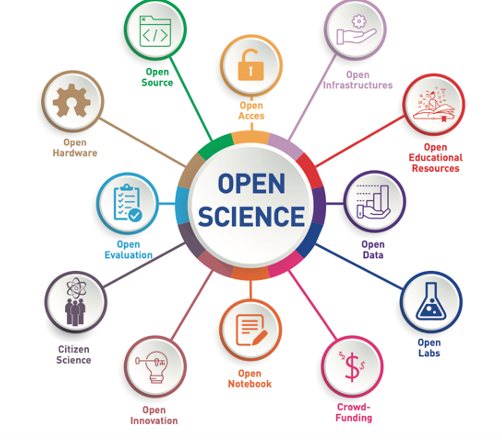
Unveiling the Rise of Open Science: Why Everyone’s Talking About It
Unveiling the Rise of Open Science: Why Everyone’s Talking About It https://opusproject.eu/wp-content/uploads/2023/11/OS_pic_for_award.png 502 441 Open and Universal Science (OPUS) Project Open and Universal Science (OPUS) Project https://opusproject.eu/wp-content/uploads/2023/11/OS_pic_for_award.pngIn recent years, you may have heard a lot about the Open Science movement. But what exactly is it, and why is it gaining so much attention? Open Science refers to a collaborative and transparent approach to scientific research, where findings, data, and methodologies are shared openly with the public. The movement has been steadily gaining momentum, and there are several key reasons behind its increased visibility.
- Democratizing Knowledge:
One of the primary reasons for the growing prominence of Open Science is its commitment to making knowledge accessible to everyone. Traditional scientific research often involves paywalls and restricted access to research papers, limiting the reach of valuable information. Open Science seeks to break down these barriers, allowing anyone with an internet connection to benefit from and contribute to scientific knowledge.
- Accelerating Innovation:
Open Science encourages collaboration among researchers, regardless of geographical location or institutional affiliation. By sharing data and methodologies openly, scientists can build on each other’s work more efficiently. This accelerates the pace of innovation, as researchers can avoid duplicating efforts and collectively tackle complex challenges facing our world.
- Enhancing Reproducibility:
Reproducibility is a cornerstone of good scientific practice. Open Science promotes transparency by making research materials, data, and code openly available. This makes it easier for other researchers to reproduce experiments and validate results, contributing to the reliability and credibility of scientific findings.
- Addressing the Replication Crisis:
In recent years, concerns have been raised about the reproducibility of scientific studies, leading to what is often referred to as the “replication crisis.” Open Science aims to address this issue by promoting transparency and providing a platform for researchers to share both successful and unsuccessful attempts to replicate studies. This helps the scientific community learn from failures and refine their approaches.
- Harnessing Technological Advancements:
Advancements in technology have played a significant role in the rise of Open Science. The internet, collaborative platforms, and digital tools have made it easier than ever for researchers to share and access information. Additionally, new tools for data analysis and visualization enhance the efficiency and effectiveness of Open Science practices.
- Meeting Funding Agency Requirements:
Many funding agencies are now emphasizing the importance of Open Science in their grant requirements. Researchers who want to secure funding are increasingly motivated to adopt open practices, including sharing data and making research outputs publicly accessible. This shift in funding priorities has contributed to the widespread adoption of Open Science principles.
Embracing a New Era of Scientific Discovery through Open Science
The increased visibility of the Open Science movement is a testament to its potential to transform the way we conduct and benefit from scientific research. By fostering collaboration, transparency, and accessibility, Open Science is not just a buzzword but a movement that holds the promise of advancing knowledge for the benefit of society as a whole. As more researchers, institutions, and funding agencies embrace the principles of Open Science, its impact on the scientific landscape is likely to continue growing.
Photo via Enlight-EU
- Posted In:
- Open Science News




